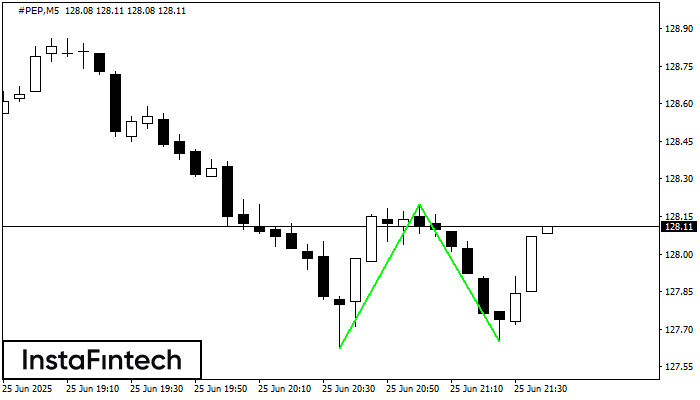was formed on 25.06 at 20:40:28 (UTC+0)
signal strength 1 of 5
signal strength 1 of 5

The Double Bottom pattern has been formed on #PEP M5; the upper boundary is 128.20; the lower boundary is 127.65. The width of the pattern is 58 points. In case of a break of the upper boundary 128.20, a change in the trend can be predicted where the width of the pattern will coincide with the distance to a possible take profit level.
The M5 and M15 time frames may have more false entry points.
Figure
Instrument
Timeframe
Trend
Signal Strength








